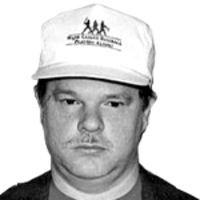ADVERTISEMENT
Allen Barra writes about books and film for Truthdig, the Atlantic, The Daily Beast, the Guardian, Salon, and the New Republic. He was recently cited by the National Arts and Journalism Awards for literary and film criticism. He has written about sports for The New York Times, Wall Street Journal, the Guardian, and Sports Illustrated. HIs book Mickey and Willie: The Parallel Lives of the Golden Age of Baseball was nominated for a PEN/ESPN award for literary sportswriting.
ADVERTISEMENT
